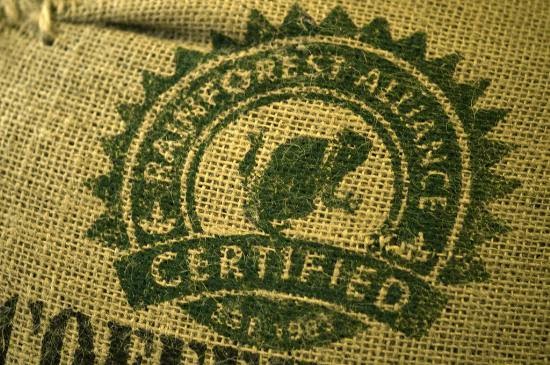 |
| Favio Martinez, my new favorite artist, and a taste of the fantastic! |
Polo’s childhood was spent
in a small coastal town in Oaxaca among a people whose superstitions were
better described as deep convictions based on real life-experiences. There were
legends of a beautiful young woman, named Matlasihua, who lived in the forest
and would lure men to come to her in the trees for a short while. When these
men returned back to town, after what felt like only a half hour, life had
actually moved forward twenty years without them. One elderly woman, a widow in
town, told Polo about a time when her two sons answered the door and greeted a
stranger who told them he was their father. They dismissed the man, who was
their own age and wearing very old style clothes, as a lunatic. But he begged
and pleaded to be allowed to see their mother. When this woman approached the
door and saw the man in front of her, she immediately identified him as her
husband, who she and everyone else had thought had been eaten by a Jaguar in the
forest twenty years before. You could call it a native folklore supported by
the elders in town as an effort to keep tradition alive in the newer
generations, but that didn’t change the reality of Polo’s fear whenever he went
exploring in the forest.
On one such excursion, hours deep into the forest,
Polo and his father had discovered giant river-shrimps the size of lobsters.
They became fisherman and sold the shrimps to all the nearby towns and made a
small fortune off of them. But catching them was not a particularly easy
phenomenon. Polo had to first learn to ride a bike that his dad had bought
particularly for the purpose of getting to and from the river. Then he had to
learn how to swim. Then he had to learn to hunt under water using a spear gun.
When his son showed himself to be worthy by acquiring these new skills, his
father bought him an army knife to accompany him on
his work at the river. Polo was by himself one day, catching river shrimps. He
had the spear gun in his hands, a mask on his face, and the army knife strapped
to his thigh, and he waited patiently among the brush under the water. He had
become an expert free diver and could hold his breath for five minutes at a
time. Suddenly, light seemed to retreat and all he saw was a black darkness.
Not the distant kind of darkness that seems to have no end, but one in the
forefront, that seemed to have a texture and a physical form. The color of this
form was darkness, and it moved across his limited field of vision. He waited
without moving until suddenly he felt the pressure of something wrapping around
his limbs. He had not known that this river was home to a giant black
river-snake called Tincuatli
in the Zapotec tongue, a rare Mexican
species similar to a python. His only encounter with this snake before was in
the stories told to him by the old people of his village.
Polo kicked and twisted and swam
to the surface for air, only to be pulled down again. He couldn’t quite get at
the knife on his thigh but wasn’t sure if would want to use it either. He
couldn’t tell where this snake began and where it ended. What fangs did it have
and would his end come more quickly if the snake suddenly felt compelled to use
them. But he decided in a sudden realization that without air he would drown,
that he wished to die in his own world and not the river where everything
seemed so strange, where everything could move so much faster and efficient
than himself. He moved and jerked and slowly made his hand find its way to his
army knife and this patience was the only thing that saved him, bought him time
until he could slash his way free from the tightening grasp of the snake around
him limbs. He began frantically stabbing at the black flesh that wrapped around
him while the snake began to uncoil, writhing in pain. He crawled himself out
of the bloody water to shore. He had lost his spear gun and his knife in the
struggle. He looked down the river and saw only blood and the black snake
moving away from the danger that he had become. He road his bike home as fast as
he could. His dad never doubted the story but bought him a gun instead. If it
should ever occur again, his son would be better prepared to defend himself.
Listening to Polo as he
shares these stories I am more entertained than I ever had been. I am alive in
the story. I feel the power in words and memories and think nothing about
movies or any other cheaper form of entertainment. I have no other desire
sitting there than to dive deep into the fantasy of his world. But this is my
world too. San Diego, California is not so far away from Oaxaca, Mexico. So
what is it about this place that makes life so much more mysterious? I
remembered that once California belonged to Mexico; once we had Native
Americans who roamed the land and called it their own, and that they had
legends of their own and were attuned to the mystery of the land. When was it
that we became absolved from the mysterious? When was our attitude, so set
against mystery, adopted and is there a way to go back? Or has the scientific
method and the opinions of learned men so destroyed our ability to wonder that
there is no going back?
The “legend” and “myth”
taught in our humanities departments presume disbelief. If they were real
beliefs at one time they are now “superstitions,” if they were fantastical they
are assumed to be fiction and their purpose for our mere amusement. We study
them and try and understand but with closed hearts, denying ourselves the power
that they could have in life. But here in Oaxaca it seems that truth and
falsehood are both apart of reality, inasmuch as they exist in our minds. I
suggest that what we deem myth in our universities is actually more real than
the dull facts of our textbooks. Even that which history says is real can have
no reality for you if it holds no effect over your life. What is real, in any
practical sense, is what makes us feel alive. [If this concept interests you, continue reading further for some deeper philosophical considerations. If not, skip to the final paragraph.]
Does fiction exist in any
CONCRETE sense? I would like to show there are two ways that fiction can exist,
one which appears as a disability and the other an enabling device. In other
words, I would like to show that immaterial things can exist in both the
negative and affirmative sense.
Imagine that your driving
up a narrow, two-lane road up the side of a mountain when you suddenly turn a
corner and find that a rockslide has blocked the entire road. There is a huge
boulder and you know that it is real because you can no longer move forward. You
feel its reality as it stands defiantly in your way. YOU have given IT a
reality. Now imagine a fiction novel and the author has just flipped your
ethics upon its head. Everything you thought was good and right has now been
shown to be false and corrupt. Selfishness and egotism are now the only things
that are true. Ideals have been replaced, traded, destroyed, and this new
concept now stands in your way. If your mind can’t find a way around it, then
it begins to take on a reality, preventing you from continuing in the direction
you were going. Just like the physical boulder in the road, this new idea takes
a form; not as physical existence, but as a psychological block. Fiction has
been made real; the unseen is now visible. YOU have given IT a reality. In one
example there is a physical entity and the other an immaterial ideal, but what
is real in both cases is that which is felt as a disability.
Another form of reality is
that which enables. Instead of concrete as a disability, preventing you from
moving ahead, imagine there is a bridge enabling you to pass over a valley.
While driving on a bridge you feel like your suspended in air over a
treacherous cliff, or floating over a huge body of water. You have given it
reality because it has enabled you. In the same way the fictional can enable
you to move forward. In another work of fiction you read about a character who
is truly independent, authentic and free, living according to his own ideals
which are borrowed from no one else save that of his own being. Perhaps in that
moment, this fictional character has enabled you to break free from the
conventional beliefs of society and to search within yourself for your own
answers to life. When before, you were unable to think outside of the box, now,
you are able to explore new territory. The physical bridge and the immaterial
character in the novel have both enabled you to move forward, and so hold a
similar reality for you.
What I mean is that we
should be more open to the kinds of myths and stories that Polo has shared.
Legends and fictional characters can exist for us just like the boulder and the
bridge do. They can disable our progress in life but they can also enable us to
move on to places we never thought possible. The immaterial can shape our reality just like the physical. They can open a whole new world to
us. The things we thought existed have now doubled. Our world has expanded.
With two weeks left in my
trip, I had been looking forward to what lies waiting for me at home. Family,
friends, California and the land and culture that it entails -- the dry
deserts, green valleys, high mountains, and the vast coast-lines and the surf
that breaks upon them. But now I am ready to discover even more and to search for the mystery that lay hidden in the land; to open my heart to a growth of reality that had always existed, only that I did not exist to it; and to have others join me in the pursuit of the fantastic.














